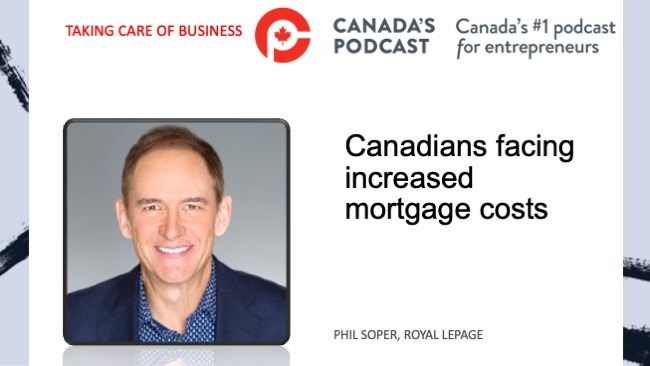The Consumer Price Index (CPI) rose 3.4 per cent year over year in May, following a 4.4 per cent increase in April. This is the smallest increase since June 2021. The slowdown was largely driven by lower year-over-year prices for gasoline (-18.3 per cent) resulting from a base-year effect. Excluding gasoline, the CPI rose 4.4 per cent in May following a 4.9 per cent increase in April, reported Statistics Canada on Tuesday.

Gustavo Fring
The federal agency said mortgage interest cost index (+29.9 per cent) remained the largest contributor to the year-over-year CPI increase. Excluding mortgage interest cost, the CPI rose 2.5 per cent in May, following a 3.7 per cent increase in April.
On a monthly basis, the CPI was up 0.4 per cent in May, following a 0.7 per cent gain in April. The largest contributors to the month-over-month increase were mortgage interest costs and travel services, which includes traveller accommodation and travel tours. On a seasonally adjusted monthly basis, the CPI rose 0.1 per cent, said StatsCan.
“In the first half of 2022, the global economy was affected by the Russian invasion of Ukraine and Canadian consumers experienced a significant increase in prices from January to June 2022. Headline consumer inflation increased from 5.1 per cent in January to 8.1 per cent in June 2022. The broad increase in prices in the early months of 2022, stemming from energy, durable goods and wheat-based food products, had a downward impact on the year-over-year rate of consumer inflation in May 2023. This is because higher prices from May 2022 were used as the basis for year-over-year comparison,” said Statistics Canada.
“Price increases observed in the first half of 2022 will continue to fall out of the 12-month price movement. While inflation has slowed in recent months, prices remain elevated. Users should consider the impact of base-year effects when interpreting the 12-month price movement.”
It said energy prices fell 12.4 per cent in May compared with the same month a year earlier, when supply uncertainty surrounding Russia’s invasion of Ukraine led to energy prices rising substantially. While this mainly affected the year-over-year price changes for gasoline and fuel oil and other fuels, a decrease in the price of natural gas (-3.5 per cent) also contributed to the energy price deceleration. This was the first year-over-year decline in natural gas prices since August 2020, and it was due, in part, to lower commodity rates.
“Gasoline prices fell 18.3 per cent in May 2023 compared with the high prices from May 2022. On a monthly basis, gas prices declined 0.8 per cent after a 6.3 per cent increase in April 2023. Prices for fuel oil and other fuels also exhibited a base-year effect, falling 36.9 per cent year over year in May following a 14.8 per cent decline in April,” it said.

Leslie Preston
Leslie Preston, Managing Director & Senior Economist with TD Economics, said Canadian inflation continued to cool in May, but progress is unlikely to be enough to prevent the Bank of Canada from raising rates in July.
“Improvements in core inflation are slow, particularly on the services side, with inflation picking up in discretionary areas like travel services and restaurant meals (6.8 per cent y/y in May). Cooler goods inflation is welcome, but the BoC has likely been counting on that already as supply chain snarls improve,” said Preston.
“Looking at the Bank’s core measures, Governor Macklem may have a Bon Jovi earworm, humming, “whoa, we’re half way there…”. But, there is still a ways to go to get inflation all the way back to two per cent. And the bank would rather not be “livin’ on a prayer”, and is likely to take rates another quarter point higher in July to ensure demand, and hence price pressures cool further.”

Benjamin Reitzes
Benjamin Reitzes, Managing Director, Cdn Rates & Macro Strategist with BMO Economics, said while the softer-than-expected core prints are a bit of good news, every inflation metric remains far above the two per cent inflation target.
“Accordingly, Bank of Canada policymakers won’t breath a huge sigh of relief after this report as core inflation remains sticky and has yet to show signs of a durable slowdown. The odds of a July rate hike might be slightly lower now, but if the rest of the data hold up over the next two weeks, a hike still looks likely,” he said.

Mario Toneguzzi
(Mario Toneguzzi is Managing Editor of Canada’s Podcast. He has more than 40 years of experience as a daily newspaper writer, columnist, and editor. He was named in 2021 as one of the Top 10 Business Journalists in the World by PR News – the only Canadian to make the list)
About Us
Canada’s Podcast is the number one podcast in Canada for entrepreneurs and business owners. Established in 2016, the podcast network has interviewed over 600 Canadian entrepreneurs from coast-to-coast.
With hosts in each province, entrepreneurs have a local and national format to tell their stories, talk about their journey and provide inspiration for anyone starting their entrepreneurial journey and well- established founders.
The commitment to a grass roots approach has built a loyal audience with over 120,000 downloads and thousands of subscribers on all our social channels and YouTube. Canada’s Podcast is proud to provide a local, national and international presence for Canadian entrepreneurs to build their brand and tell their story.





